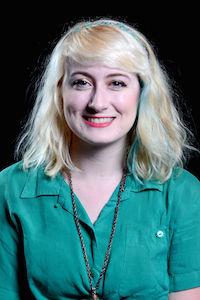I was raised “Catholic,” with a big emphasis on the quotation marks. By that, I mean I received the sacraments and finished my faith formation classes. But neither I, nor my family, truly identify ourselves as Catholic. We rarely sat in the pews on Sundays, but we shared a connection with a higher power in our home. We may not all have believed in the same thing, but we believed in something. We were too open-minded to be devout Catholics. For example, in our minds, being gay should not be a sin, and a woman should be able to choose what she would like to do with a seed growing inside of her.
I believe that everybody deserves unconditional love no matter what the “rules” are in the Bible. If somebody is truly a good person but is in a committed relationship with the same sex, who cares what some Bible verse says?
This past Saturday, the Catholic Church took a step toward that direction.
Pope Francis called for a family synod early this month, and it finished on the 19th. According to US News, this synod on the family is the first forum of its kind in nearly 30 years.
Though the aspects of homosexual acceptance could not receive the two-thirds vote required for it to be put in writing this time, I still believe this loss was a win.
Simply talking about homosexual acceptance is a huge step in the right direction. If the church did not care about people of different sexual orientations and did not think of them as part of the church, they would not even bother adding the topic to such an important gathering. There were bishops who voted for acceptance, which would make anybody also in favor of acceptance jump for joy.
This synod was only one of two, with the second following a tentative schedule for next year to finalize the decision. This type of conversation in the church forum is a very large part in accepting gays into the church.
Though this is great, I am not going to hold my breath.Pope Francis has made statements in the past about acceptance, but in most churches the homosexual population is still shunned.
According to CatholicVote.com, he said, “When I meet a gay person, I have to distinguish between their being gay and being part of a lobby. If they accept the Lord and have goodwill, who am I to judge them? They shouldn’t be marginalized. The tendency [to homosexuality] is not the problem…they’re our brothers.”
This statement is great, yeah, but it has a disappointing underlying meaning. He is saying that being homosexual is not the problem, but acting on those desires to commit homosexual acts is a sin. So he means they shouldn’t be marginalized if they accept God and resist their temptations. I interpret what he’s saying as if you deny yourself of who you are, you will be just fine.
So all the gays who want to be accepted in the church just have to be unhappy for the rest of their lives, right?
This is all dandy, but why is the interpretation of a book that is worshiped by millions being decided by a bunch of regular people in the first place? Whatever these people decide will be thought of as fact by countless people. The Bible was written thousands of years ago and translated so many times that nobody truly knows what messages it is trying to convey.
People should decide on their own what to believe in, and take all outside influences with a grain of salt. Even in works of literary fiction which have been translated, the instructor usually says “This may not be what the author meant because it has been translated into English.” And that work was most likely written more recent than 1,000 years ago.
Even the Pope thinks disagreement is acceptable with these issues. According to The Guardian, he said, “Personally I would have been very worried and saddened if there hadn’t been these … animated discussions … if everyone had agreed with one another or had kept silent in a false and acquiescent peace.”
If we can’t all agree, why don’t we just agree to disagree and accept everyone for who they are? Even the Pope of the traditionally stringent church has an open mind.
“God is not afraid of new things,” Pope Francis said during the conclusion of the Synod on Saturday evening. “That is why he is continuously surprising us, opening our hearts and guiding us in unexpected ways.”








